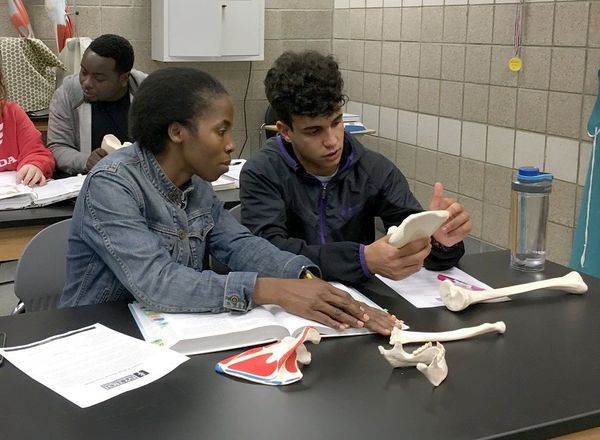Outsmarting poverty requires long-haul thinking. This is why we partner with organizations committed to breaking the cycle of poverty across lives and generations. And this is why we have convened a new cohort of six innovative service providers--some of poverty’s fiercest adversaries striving to make a lasting impact by transforming the lives of those they serve. These organizations are partnering with our researchers to design, implement, and evaluate interventions to identify long-term solutions to poverty.
Finding these long-term solutions often begins by meeting short-term needs. King County Metro (Seattle, WA) knows that creating an equitable transportation system is the first step to helping those in need find and keep jobs. By connecting people in poverty with a “transportation concierge,” someone who will coach clients through their transportation challenges, King County believes it can eliminate the transportation barriers that double as barriers to economic opportunity.
The Santa Clara Office of Supportive Housing (OSH) (Santa Clara, CA) embraces a similar mission. To help increase the supply of affordable housing for low-income people, the Santa Clara OSH is working with LEO to test a new housing problem-solving program. Designed to help those experiencing homelessness meet their immediate housing needs, program staff work with clients to identify creative, short-term solutions that will improve their chances of gaining long-term stability.
It’s amazing how brief and low-cost interventions can create long-term change. Helping Restore Ability (HRA) (Arlington, TX) provides the resources, care, and support Texans with disabilities need to live full and dignified lives. By offering a new training program to caretakers of disabled people, HRA believes it can improve the health and reduce the financial burdens of families in need.
Just like immediate opportunities help shape the present, working toward big, transformational goals helps shape the future. FaithBridge Foster Care (Alpharetta, GA), which leverages church communities around Georgia to meet the needs of foster children, is working with LEO to uncover the advantages of its creative and unique model.
Ivy Tech Community College (South Bend, IN) knows investing in higher education unlocks doors to meaningful work and dignified, sustainable lives for families. Through its partnership with LEO, Ivy Tech is investigating whether or not comprehensive academic coaching helps students complete degrees. By working to address the community college degree-completion process, Ivy Tech pursues both individual transformation and multi-generational impact.

Foster Care Alliance (Atlanta, GA) takes a similar long-term view. In partnering with LEO to gauge the impact of its comprehensive trauma-informed services, it aims not only to improve the lives of foster children in need of stable, loving homes but also to address the root causes of family instability.
Over the coming months, we look forward to pursuing long-term impact by launching rigorous, thoughtful evaluations with these incredible partners. By enabling them to better execute their courageous missions, we will be one step closer to learning what works in the fight against poverty. We can’t wait to share what we learn!
Originally published by at leo.nd.edu on June 09, 2020.